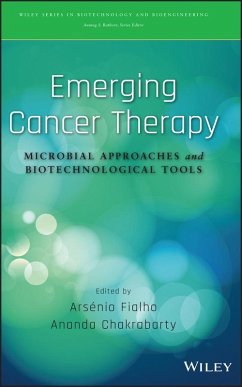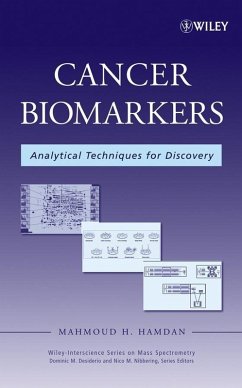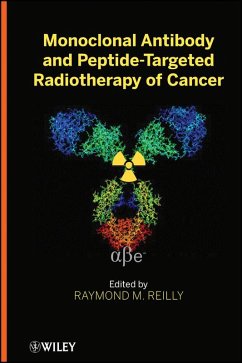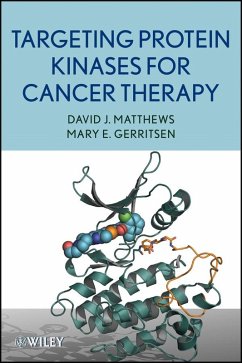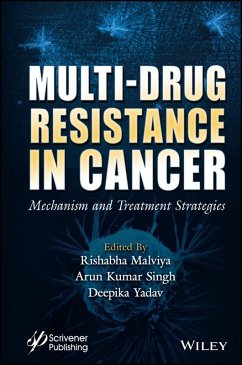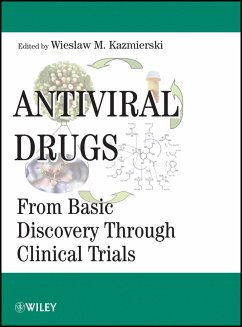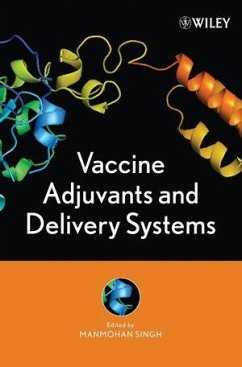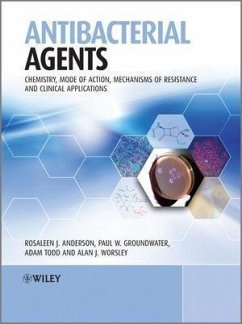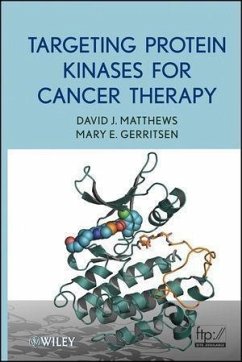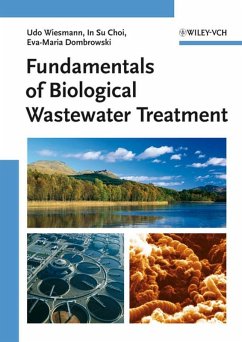
Emerging Cancer Therapy (eBook, PDF)
Microbial Approaches and Biotechnological Tools
Redaktion: Fialho, Arsenio; Chakrabarty, Ananda
Versandkostenfrei!
Sofort per Download lieferbar
134,99 €
inkl. MwSt.
Weitere Ausgaben:

PAYBACK Punkte
0 °P sammeln!
Explores current and emerging applications of microbes as cancer-fighting agents WILEY SERIES IN BIOTECHNOLOGY AND BIOENGINEERING Anurag S. Rathore, Series Editor Today, treatment options for cancer patients typically include surgery, radiation therapy, immunotherapy, and chemotherapy. While these therapies have saved lives and reduced pain and suffering, cancer still takes millions of lives every year around the world. In recent years, researchers have been working on a new strategy: developing microbes and microbial products that specifically attack cancer cells. This book breaks new ground ...
Explores current and emerging applications of microbes as cancer-fighting agents WILEY SERIES IN BIOTECHNOLOGY AND BIOENGINEERING Anurag S. Rathore, Series Editor Today, treatment options for cancer patients typically include surgery, radiation therapy, immunotherapy, and chemotherapy. While these therapies have saved lives and reduced pain and suffering, cancer still takes millions of lives every year around the world. In recent years, researchers have been working on a new strategy: developing microbes and microbial products that specifically attack cancer cells. This book breaks new ground in emerging cancer treatment modalities by presenting recent advances in the use of microorganisms and viruses as well as their products in cancer therapy. Seventeen chapters review the application of live microorganisms, high and low molecular weight products derived from microorganisms, and microbial products fused to cancertargeting molecules. In addition, the book highlights the benefits of a multi-target approach to destroy cancer cells. Readers will not only discover the results and significance of basic and clinical research, but also encouraging results from clinical trials. Emerging Cancer Therapy is divided into three sections: * Section 1: Live/Attenuated Bacteria and Viruses as Anticancer Agents * Section 2: Bacterial Products as Anticancer Agents * Section 3: Patents on Bacteria/Bacterial Products as Anticancer Agents With chapters written by leading pioneers in microbial, biotech, and cancer research, Emerging Cancer Therapy is recommended for biotechnologists, microbiologists, clinical oncologists, medicinal chemists, and biochemists. Readers will not only learn the tremendous potential of microbial and biotechnological approaches to cancer therapy, but also discover new directions of research for effective drug discovery and development.
Dieser Download kann aus rechtlichen Gründen nur mit Rechnungsadresse in A, B, BG, CY, CZ, D, DK, EW, E, FIN, F, GR, HR, H, IRL, I, LT, L, LR, M, NL, PL, P, R, S, SLO, SK ausgeliefert werden.




